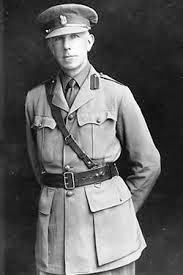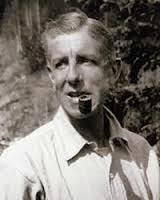1864 to 1939

The “Laird of Fintry” was a fascinating man of contrasts. He was a frugal Scot but generous, too. He revered tradition but was both innovative and inventive. Dun-Waters was of the landed gentry but often dressed so casually, he’d be mistaken for a tramp. He was a gracious host, passionate about his beliefs and a stern but fair employer. He would accept nothing but the best in himself, his staff or his projects.
Dun-Waters was a younger son who unexpectedly inherited a fortune at the age of 22. Money allowed him to pursue his love of hunting, which led him to Canada. In 1909, when he saw and explored Shorts’ Point, he knew he’d found his dream. Within a year, he bought the delta and renamed it Fintry after his home in Scotland.
He returned to England to fight for King and Country in WWI, and was wounded at Gallipoli. When the war ended, he built a convalescent centre in Egypt with his own funds so soldiers could recuperate before returning to the British Isles.
His beloved Alice died in 1924. Shortly after that, the house burned down. He rebuilt it and moved back in, with the Stuarts for company. Katie Stuart had been Alice’s faithful companion and her brother Geordie was the estate accountant. Seven years later, Dun-Waters married again. He chose Margaret Menzies, a recently immigrated Scottish lass, 30 years his junior. After Dun-Water’s death, Margaret found Fintry too isolated for her liking, so she moved to Kelowna.
In his 30 years at Fintry, Dun-Waters turned the delta into a productive farm and impressive estate. But his interests also stretched to broader horizons. He was a director of the CPR and played strong roles in the BC Fruit Growers Association, the Armstrong Exhibition organization and curling clubs from Vernon to Vancouver.

Having no heirs, Dun-Waters sold Fintry Estate to Fairbridge Farm School for one dollar. This was a philanthropic organization that trained underprivileged children to become farmers.
Physically, Dun-Waters was a slight man but he cast a giant shadow across the valley he loved. Its benefits are still felt.
